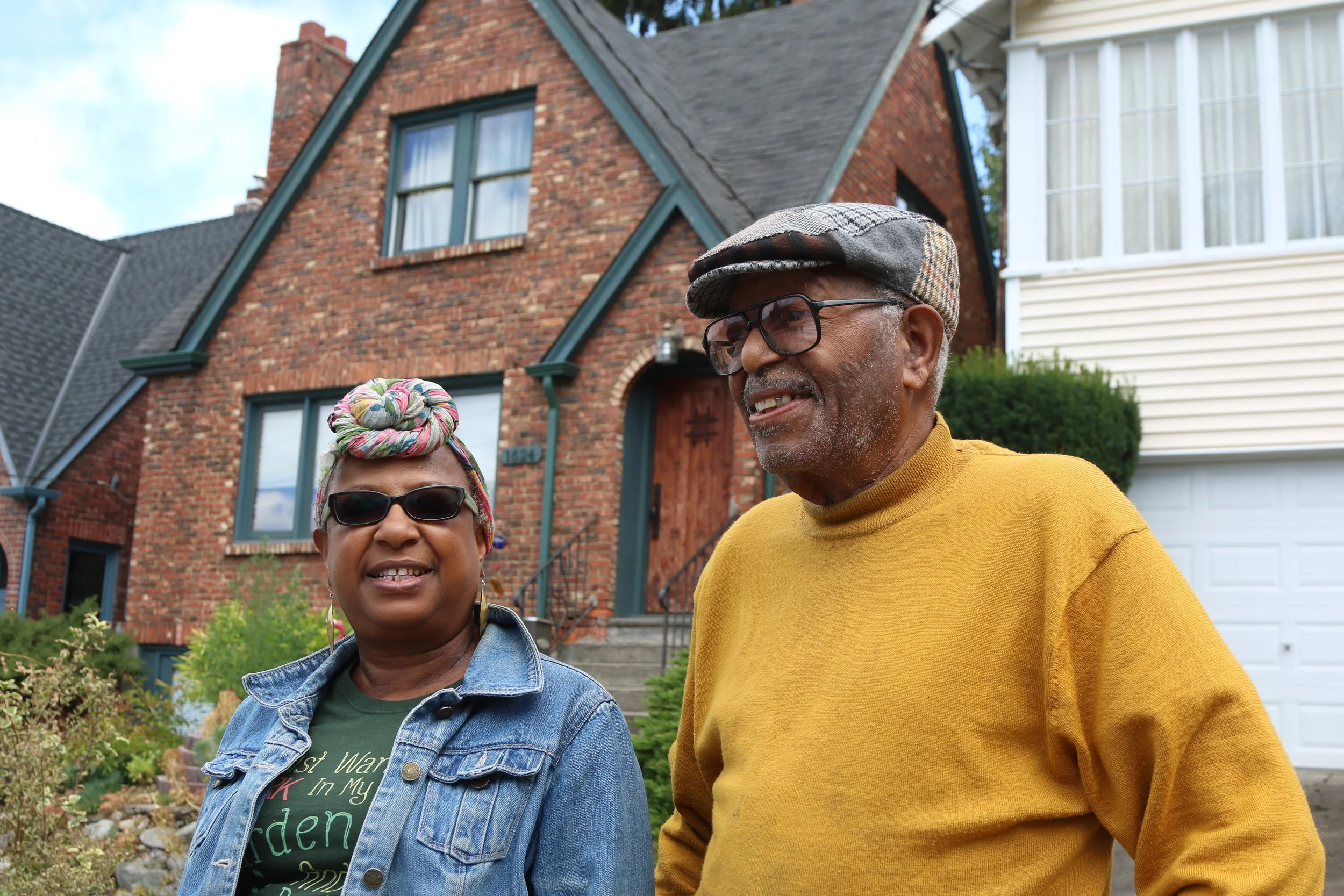Photo by Inye Wokoma
Cecil Beatty moved to Washington state from Oklahoma, during World War II, to work as a machinist in the shipyards. In the early Fifties, he bought a home on 31st and Olive, in the Madrona neighborhood (pictured here). Phyllis is his daughter. She grew up in the house at 31st and Olive, and raised her own children in that house, after marrying John Yasutake.
Phyllis: I meant to tell Daddy to bring the Jet magazine. There's an article in Jet Magazine about him, about Seattle, because an African American man was killed by off-duty policemen. They, these two African American men went in to buy some Chinese food in a restaurant, the officers were there with their wives, and they started making racial slurs and comments and rude things about these men, so the man called up his brother and said, "You know, it's getting ready to go down." So they went over the confronted the guys about the remarks and beat the snot out of them, in a fight, fair fight. The brothers won. They left the restaurant, got in their car to drive off, the officers came out and shot and killed him through the back of the car.
Cecil: Yeah, he was sitting in the back and he got shot in the back of the head back there. So we started a program, at that time, you had foot beat cops, you know they weren't all in patrol cars, downtown, Chinatown, and this happened in Chinatown. And beat cops, they'd walk the streets, Madison, they'd walk the streets you know, beat cops. So we in pairs, we would march behind them and watch them. I don't know why they didn't turn around and smack us but they didn't.
Phyllis: They'd put them with a man and woman, so they figured it would diffuse a lot things to have a woman with every man. It was to make a statement, because this wasn't the first incident with police, you know, there was a lot of stuff going on, no cameras or anything like that, so they just said, "Fine, we'll just walk the beat with you and make sure that there are witnesses to whatever you do."
Cecil: You know, as long as the beat cops on the street, there was somebody behind them.


